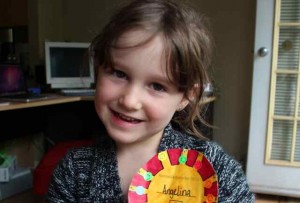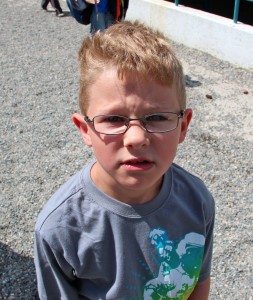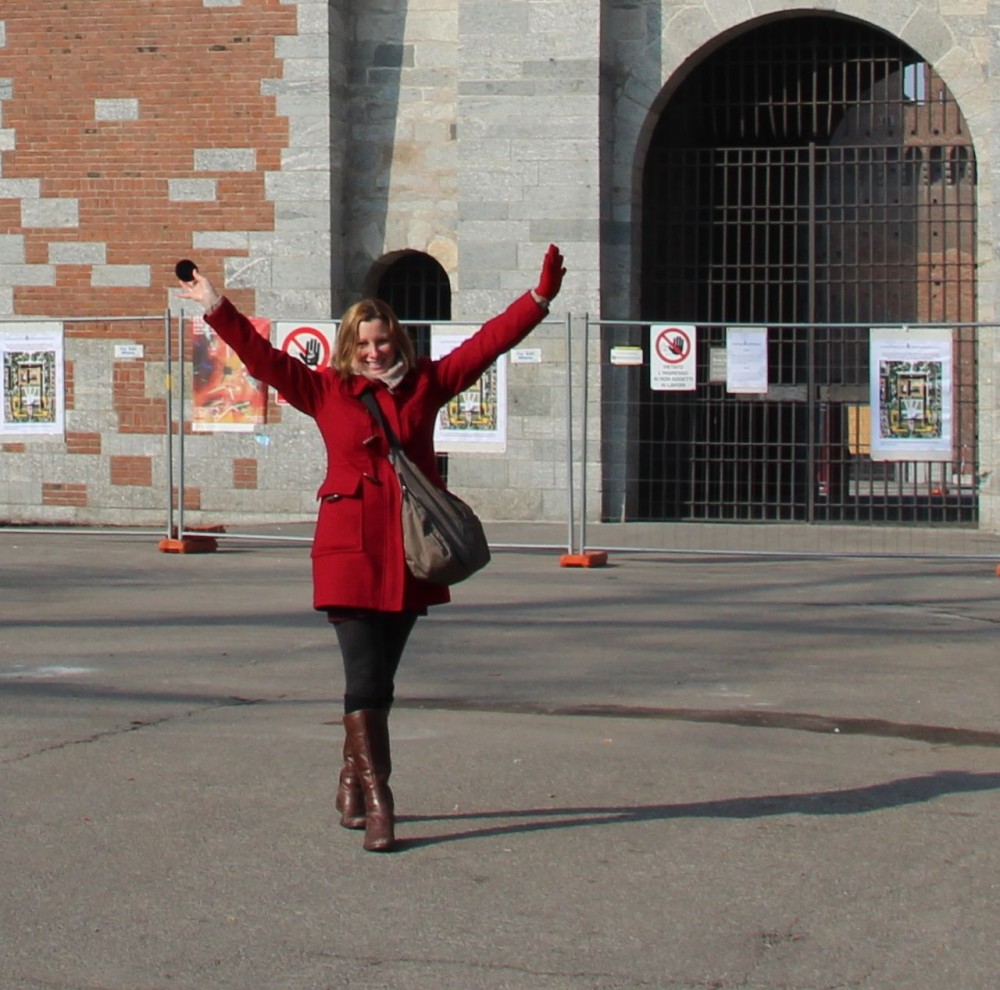When I was a kid learning in public school I remember thinking, where is the trick? The answer was never the obvious simple one that made the most sense to me but the one they were hiding in the riddle. I understood things best when directly applying it to my life and even having the right answer given to me first, and remembering the right answer instead of accidentally memorizing the wrong one helped me. It was a very old style of teaching, downward teaching and because of this, I trusted little of what I read, and tried to find the hidden meaning in what could really be simple learning. Couldn’t that make for a generation of untrusting people?
I didn’t make the connection between the courses until later on, and felt that the wider understanding of what I learned took much longer to make. Other types of education do a better job of an overall education, and one of connecting the dots.
For instance, Montessori education will have a topic and they will study the topic in all the different courses. Math, English, Science and Social Studies were intermingles as it is in life. Concepts explored as a group and every child rings in, no answer was wrong, and everything was included. This year, for Daniel’s class in the 3-year cycle would have been planets. I am sure they all get to pick a planet, and have projects to show what they have learned. One child might show a 3D box of the galaxy, and their planet would have a list of facts about it. They would combine Art, Math, English and Science all in one, telling how far apart each planet is from one another, designing a colorful presentation and a written report to go with it. And we have to remember these are Grade 1-3 kids. The child would then be asked to present to the class their project, to teach the others in their own words and take questions. They can see how the different projects connect to each other’s, reinforcing the information learned. It is nothing short of brilliant, and a long way from the old school style I was taught in!
As I try to help my kids through regular Canadian curriculum correspondence books, I notice more than ever, the lack of teaching them to think for themselves, but time wasted on trying to figure out exactly what it is they want the answer to be. It really is memory, memory and repeat work. It feels like repetition work that a parrot could recite. My question is, are the kids learning to think? Or are they just regurgitating what is on the page? If your recall is good, then once you connect the concepts it may be worth memorizing the different lessons, but if not the information is lost on them and they would have to relearn the information over again in their own way of understanding, when they are allowed, perhaps in high school or university where free thinking is excepted. Imagine if every child were allowed to use their natural ability of divergent thinking! The possibilities would then be google fold.
The youngsters in regular elementary school here in Europe are very academic, and I wonder how my kids will do having nothing to compare the information too, and if the connection to their own life will be lost. Going from Montessori to regular school is a hard line to cross. It feels like a backwards approach to learning for them. There is no room for free thought, or fun learning or hands on sensory development. I cross my fingers, and eventually we will throw them in sink or swim to a totally different concept of learning. I am a mother therefore I have guilt.
Angelina is doing much better than expected because she has no idea what she is missing. She blasts through the work with little care how it connects to her world. Daniel, being in Montessori since 2 1/2 seems trapped in memory hell, and slowly progresses. Even his slow progression is on target, but it is painful to watch the boy struggle where once he bloomed. I have factored in stress from moving as well and made allowances. Maybe once settled in France I will breach the subject again and find a better solution. For now this is my lesson in patience. One that is long overdue!
We found some Animal Planet DVD games in the cereal boxes and collected them all. They are questions on different animals, where they live, which are bigger, what they eat. They don’t tell you the right answer; the children have to repeat the section in order to find out. They will repeat the section in search of the right answer to gain the perfect score over and again. The DVD’s are meant for Grade 4-6 students, but Angelina and Daniel love what they are learning and absorbing at a phenomenal rate. Why can’t schoolwork be this fun? Someone should devise a correspondence video series in a video game fashion to keep the kid’s interest. Their sponge like brains are used to quick information being thrown at them, so when you slow it down to slow motion book learning, some kids shut down and are ready for bed. Daniel instantly looks tired even first thing in the morning when doing homework.
A happy point on this experience, and on the unschooling absorption through personal experience front, the kids have been in Budapest for 6 weeks and are both speaking Hungarian. Daniel understands everything and I have caught Angelina speaking to people in Hungarian, as well as six kittens she made friends with in the town of Bakonysarkony where my cousin and his family live! We told her that Hungarian kittens don’t understand English and she quickly learned the basics! She is the type of kid that keeps quiet until she is sure of herself so she can speak without mistakes. Far more self-conscious than Daniel that will speak with hands and feet to get his point across!
We all want our children to have the best chance at finding a way to make a living and balancing happiness and work. The question is how do we achieve this without breaking our children’s natural love of learning? When I force them they develop anxiety towards homework and both shut down as if it were punishment. Like sticking them into chairs and shouting facts and concepts at them. Not much fun for my light hearted, easy going kids.
I am not sure we are ‘Home-Schooling’ people. Being my children’s teacher has its challenges. However, playing and learning along the way through discussion and experience has been a blast. I am tempted to throw out the curriculum books, and cross my fingers they can learn the basics. I hope they benefit from our homeschooling experiences.













Thanks for the link Shannon! The kids learn life skills and solution finding at home where they learn facts at school. Even now, in their IB public school in France the kids still learn the majority of their lessons at home.
I can see a change coming in how Canada teaches their youth, moving to online education, and opening more free Montessori elementary schools in BC. Parents want better education for their children, and lets face it, the curriculum only gives information, not how to find the answer through divergent thinking. In other words, we don’t have any idea what the future looks like at this rapid speed of change, so the information we are learning today is already outdated. We need to teach our children how to think, how to find the answers, not memorize them.
Good luck making your difficult up coming school choices. I have faith it will all fall into place.
Hi Eva –
Thanks for this post. As a parent with a child who is approaching public school age, I’m busily gathering as much data as possible on alternatives for schooling.
As you know, my family’s lifestyle doesn’t really “fit” within the traditional school system (away traveling 3-4 months a year), yet I’m not sure that my husband and/or I are cut out to be homeschoolers full-time. In addition, I foresee having problems similar to what you experienced with the “read & repeat” approach of the Canadian school system.
The children I have met while traveling who have been home schooled seem to be some of the most well spoken, well rounded and generally worldly kids I’ve ever met.
Lots to consider and thanks for bringing up a topic that is increasingly relevant as families break free to explore the world together!
P.S. Thought you might like this infographic re: homeschooling – http://www.collegeathome.com/homeschool-domination/
Comments are closed.